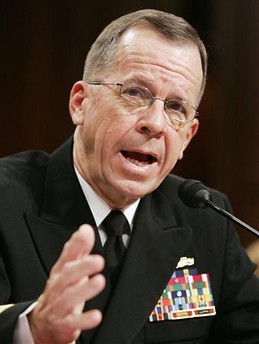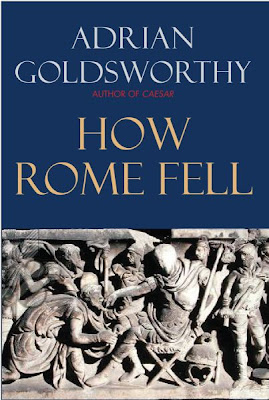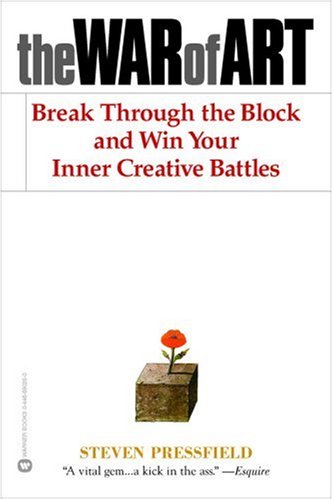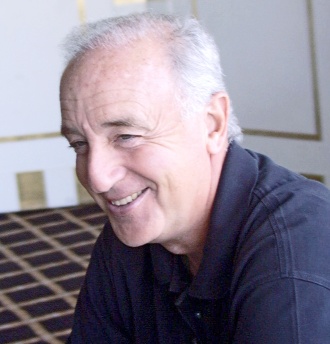I am pleased to have as a guest-blogger, Charles Cameron, who is the former Senior Analyst with The Arlington Institute and Principal Researcher with the Center for Millennial Studies at Boston University. He specializes in forensic theology, with a deep interest in millennial, eschatological and apocalyptic religious sects of all stripes.
MAHDISM IN THE NEWS
by Charles Cameron
I.
What’s this about the Mahdi and a call for Islamic mobilization?
Al-Arabiya carried what seems to me to be a significant article about the Mahdi, Islam’s end-times savior on August 17th. The report stated that the personal representative of the Supreme Leader was calling on Iran’s neighboring states “to mobilize their forces in preparation for the coming of the savior of Islam”.
Ayatollah Ali Khamenei’s spokesman, Ali Saeedi, said countries like Turkey, Iraq, Lebanon, Pakistan and Afghanistan should gather together all their forces in order to make drastic changes to prepare for the coming of al-Mahdi al-Montazar, Arabic for “the awaited guided one.”
“We still have a long way to go in order to achieve this. We have to train honest forces that can stop the obstacles that may hinder the coming of the Mahdi like the United States and Israel,” Saeedi said in statement posted by the Iranian Labor News Agency (ILNA).
Muslims must unite for Islam’s Savior: Iran, Al-Arabiya, Monday, 17 August 2009
That’s a call to arms, put out by a Shi’ite nation state, and addressed to Sunni and Shi’ite alike — and it drew almost no attention in the western press.We can safely disregard it, right? After all, Mahdism is a Shi’ite phenomenon, and whereas Iran has a conservative rearguard that expects the Mahdi’s soon-coming along with President Ahmadinejad, the Sunni world has no time for that kind of thing.
Except that bin Laden seems to share the apocalyptic expectation, if not the exclusively Shi’ite details — the view that the Mahdi has already been born once, into a Shi’ite family, and is presently in occultation prior to his soon return.
So I am not arguing that we should worry too much about Turkey, Iraq, Lebanon, Pakistan and Afghanistan all deciding to join forces with the Iranian Republican Guard any time soon. But I am arguing that we should be alert to Mahdism — and more generally, Messianism — as a contemporary driver.
II.
It so happens that Steve Coll was on the radio again this week, in a rebroadcast of a talk he gave in April, and here’s some of what he had to say on the subject of Osama bin Laden:
It’s a mistake to see him entirely as a political, or even to some extent mostly, as a political leader. He has a purchase on these grievances and he understands them and I’m sure he feels them — but he’s also a millenarian: he believes that he’s been called by God to wage a war that will only conclude at the end of time. He hasn’t built a political movement, he doesn’t offer any social services, he doesn’t build a hospital — he thinks he’s fighting until the end of time, that he’s carrying out a narrative that’s pre-ordained, and that his role is to awaken God’s followers to their righteous role so that they can pass to the next phase. And so there is this interaction of millenarian, apocalyptic thinking on the one hand — which justifies all violence — and this sort of terrestrial political critique on the other. And what happens when you read his statements in the west is that, well, everyone can understand the political critique, so that gets all the attention — and people’s eyes glaze over at the rest because it’s a little bit hard to digest. But when you read it in full it’s a very, very important aspect of why he’s doing what he’s doing and who he thinks he is.
Steve Coll, talking about his book The Bin Ladens for the World Affairs Council.
Should that surprise us?
Not if we noted Bin Laden’s quotation of the “Gharqad tree hadith” — which specifies the nature of the end times conflict:
Doomsday shall not come until Muslims fight Jews. A Jew would be hiding behind a tree or a stone. The tree or the stone would say, O Muslim, O subject of God, there is a Jew behind me come and kill him. The only exception is [Gharqad] tree is a tree that belongs to Jews.
and his comment:
Whoever claims that there is lasting peace with the Jews is a disbeliever of what the prophet, may the peace and blessings of God upon him, said. Our conflict with the enemies of Islam will continue until Doomsday.
No definite timeline is given, and bin Laden also remarks that his father waited forty years for the Mahdi — and indeed set aside $12 million to support him on his arrival — but the appeal is to end-times expectation,
FWIW, this isn’t the only time bin Laden has quoted the Gharqad tree hadith, and it is also quoted in the Charter of the Hamas — for more on the topic, see Anne Marie Oliver and Paul Steinberg, The Road to Martyrs’ Square, pp 19-21, and watch this chilling MEMRI video from of Sheikh Muhammad Al-Arifi, speaking on Al Aqsa TV, September 2008.
III.
Why is eschatological or apocalyptic rhetoric significant?
It is an accelerant. Simply put, it is a force-multiplier, acting on morale via the sphere of religion, by providing divine sanction for violence — zeal with a deadline.
.
Apocalyptic expectation is in part the expectation that “all the injustices of the old world will be put right” very soon, as Damian Thompson noted, and it creates “an especially potent form of charismatic authority, one that rubs off on ordinary believers as well as the prophet.” This extraordinary empowerment of the individual believer comes about because “foreknowledge about one of the most important subjects imaginable — the fate of the planet — creates a special, even intimate, bond between those who share it”:
In every case, the most striking feature of the millennial theodicy is the contrast between present misery and the glory to come: the latter justifies and makes tolerable the formed.
It may also justify and make tolerable the use of violence in the lead-up to apocalypse, as it clearly does in both the Shi’ite call to arms and the Sunni hadith quoted above. And furthermore, in all these cases the misery is the fruit of sin, whereas the glory is the glory of God.
The nature of millennial expectation is conditioned by culture, yet cross-cultural in its basic patterns, and transcendent in its authority. Thompson goes on to note that “the anticipation of violence does not constitute a cost of millenarianism, since the blood being shed will be that of the unsaved” — and Kerry Noble put the point quite succinctly in his retrospective account of a Christian millenarian movement he later left:
I was not looking forward to the coming war, but I was looking forward to the Kingdom of God that was to follow. That’s how many of us rationalized being soldiers of God. We wanted peace, but if purging had to precede peace, then let the purging begin.
Ahmadinejad or bin Laden might say much the same.
IV.
Who is awake to this pervasive strand of eschatological thinking, among the Shi’a, among the Sunni, and among ourselves?
I cannot speak for the intelligence community, except to say that a rational, secular analyst monitoring these matters is liable to note the “blips” of open source intel but miss the fire that underlies them. Or again, as Steve Coll put it,
people’s eyes glaze over at the rest because it’s a little bit hard to digest.
That’s not a feature — that’s a bug.
Some on the Christian right get it, because they live in the apocalyptic realm themselves. The two Joels, Rosenberg (author of Epicenter) and Richardson (author of The Islamic Antichrist), were among the few to blog Ali Saeedi’s comments, with Joel Rosenberg picking up on a piece on WND that quotes Joel Richardson, whose own blog, Joel’s Trumpet, monitors Islamic apocalyptic closely from a Christian apocalyptic perspective.
But short of actual apocalyptic belief of one’s own — which will generally cause one to disparage if not dismiss the equivalent apocalypses of others — it takes an ear open to the whisperings of myth and dream, a mind open to the logic of music and poetry to understand such thinking, such imaginings.
Michael Vlahos of Johns Hopkins, the author of Fighting Identity: Sacred War and World Change , certainly gets it, noting that 9/11 was the work of Holy Warriors “passionately steeped in ancient Muslim apocalyptic” — and that we responded “with out own brand of American apocalyptic”. Daniel Benjamin and Steven Simon, senior members of Clinton’s National Security Council get it — noting in their book, The Age of Sacred Terror, that “so much of what was heard from al-Qaeda after the attacks sounded to Americans like gibberish that many chords of the apocalypse were missed.”
, certainly gets it, noting that 9/11 was the work of Holy Warriors “passionately steeped in ancient Muslim apocalyptic” — and that we responded “with out own brand of American apocalyptic”. Daniel Benjamin and Steven Simon, senior members of Clinton’s National Security Council get it — noting in their book, The Age of Sacred Terror, that “so much of what was heard from al-Qaeda after the attacks sounded to Americans like gibberish that many chords of the apocalypse were missed.”
Ali Allawi knows it, and dedicated his 2007 talk at the Jamestown Foundation to noting the “under the radar” existence and significance of Mahdist millennialism in Iraq.
But who else?
V.
When the overtly millennial year two thousand CE was approaching, Boston University hosted the Center or Millennial Studies, brainchild of Richard Landes of BU and Stephen O’Leary of USC, and for almost a decade scholars gathered for conferences to share the commonalities and differences between millennial movements from before the birth of Christ to the coming century and beyond.
When the roll-over to 2000 passed without major apocalyptic incident, the Center closed — but the millennial season was not over, it has only just begun.
Just this month I saw a “birther” — someone who believes President Obama was born in Kenya, and is thus not eligible to be president of the United States — tying that position in with Joel Richardson’s “middle eastern” antichrist: apocalyptic fervor once again enhancing a political stance. There will be more…
We will keep seeing millennial outpourings of zeal — and perhaps, though not always, violence — at least until 2012, when Mayan calendar enthusiasts (and apparently some readers of the jihadist online magazine, Jihad Recollections, issue 3) expect apocalyptic changes. And if the world staggers through to 2013 then at least to 2033, when many Christians will no doubt wish to celebrate the 2000th anniversary of the crucifixion and resurrection of their Savior. And should that not suffice for an ending of an age, at least till the turn of the next Islamic century in 1500 AH or 2076 CE and arrival of that century’s mujaddid or “reformer”. Or indeed the climactic battle between Islam (represented by the Mahdi) and Buddhism, predicted, curiously enough, in one of the Dalai Lama’s preferred texts — the Kalachakra or Wheel of Time Tantra — to take place in 2424 CE..
VI.
Perhaps we should take a hint from the Kalachakra, which in addition to positing an end times war, suggests that this is no more than a “a metaphor for the inner battle of deep blissful awareness … against unawareness and destructive behavior”. Gandhi said much the same about the battle of Kurukshetra in the Bhagavad Gita.
One might wish that all apocalyptic believers felt that way: they don’t.
 substantive points, with which I essentially agreed. Admiral Mullen also deserves credit for modeling intellectual leadership by putting his own ideas into the arena rather than relying upon public affairs officers to issue bland statements in his name. This is exactly what we should see from our senior military officers – leadership!
substantive points, with which I essentially agreed. Admiral Mullen also deserves credit for modeling intellectual leadership by putting his own ideas into the arena rather than relying upon public affairs officers to issue bland statements in his name. This is exactly what we should see from our senior military officers – leadership!


 the reader to an understanding how bottom-up, “blind”, systems work and the principles behind them. Highly readable and next to no jargon. Probably due soon for an updated edition though, given the scientific advances in research in network and complexity studies.
the reader to an understanding how bottom-up, “blind”, systems work and the principles behind them. Highly readable and next to no jargon. Probably due soon for an updated edition though, given the scientific advances in research in network and complexity studies. centuries as it was during the golden age of philosopher-warrior-emperor Marcus Aurelius. Or that there was no fall of the empire at all, just a gentle “transformation” into something new. Goldsworthy discusses the likelihood of Late antquity “paper legions” of Roman armies which, in any event, scarcely resembled in elan, tactics or fighting strength the ones that Julius Caesar wielded in Gaul. A tour de force marred only by a weird epilogue that ranges from pedestrian to ( in it’s last sentences) truly awful – was it it tacked on as an afterthought? Did the editor of the rest of the book die before it was completed? Regardless, How Rome Fell is a worthy addition to an collection of popular ancient histories.
centuries as it was during the golden age of philosopher-warrior-emperor Marcus Aurelius. Or that there was no fall of the empire at all, just a gentle “transformation” into something new. Goldsworthy discusses the likelihood of Late antquity “paper legions” of Roman armies which, in any event, scarcely resembled in elan, tactics or fighting strength the ones that Julius Caesar wielded in Gaul. A tour de force marred only by a weird epilogue that ranges from pedestrian to ( in it’s last sentences) truly awful – was it it tacked on as an afterthought? Did the editor of the rest of the book die before it was completed? Regardless, How Rome Fell is a worthy addition to an collection of popular ancient histories. is brilliant but because it is profound. Utilizing select personal vignettes and other anecdotes, Pressfield distills in everyday language the essence of what creative people need to understand if they are to succeed – concepts of “resistance”, which seductively undermine your efforts, and being a “professional”, which is the mindset that will get you there.
is brilliant but because it is profound. Utilizing select personal vignettes and other anecdotes, Pressfield distills in everyday language the essence of what creative people need to understand if they are to succeed – concepts of “resistance”, which seductively undermine your efforts, and being a “professional”, which is the mindset that will get you there.

